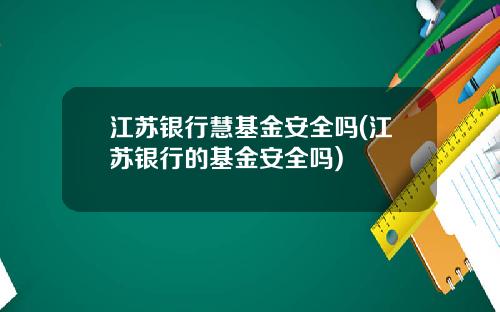CKGSB MBA Financial Innovation Module Wrapped Up in Shanghai
CKGSB MBA Financial Innovation Module Wrapped Up in Shanghai 长江商学院
【MBA中国网讯】
On November 22nd, CKGSB MBA Financial Innovation Module was wrapped up in Shanghai. During this four-day module, students from CKGSB MBA Program had the opportunity to learn how financial innovation impacts China’s economy, and visited pioneering enterprises to witness Shanghai’s development into a world-leading financial center.
In 2009, the central regulators issued an action plan, aiming for Shanghai to establish itself as a global financial market leader and a go-to market for RMB-based trading. A legal, innovative, highly efficient, transparent and open financial system is expected to be in place by that time.
As part of CKGSB MBA’s innovative curriculum, the Program designed this highly immersive action learning module, which enables MBA students from all over the world to learn by doing, get up-to-the-minute business insights, and benefit from hands-on experience from China’s leading companies.
Academic Lectures
To equip MBA students with sufficient knowledge on China’s economy and financial innovation, the Program offered over 12 hours’ academic lectures given by Prof. LI Haitao, Dean’s Distinguished Chair Professor of Finance, Prof. MEI Jianping, Professor of Finance, and Prof. ZHANG Gang, Assistant Professor of Economics.
Prof. LI Haitao talked about Chinese economy in transition, during which he shed light on the internal and external challenges of Chinese economy, the development of China’s service industry, including healthcare and education, the current situation of China’s manufacturing, with auto industry highlighted, and China’s financial reform to support the real economy.
Prof. MEI Jianping shared his insights on Chinese economy from a financial perspective. A clear analysis on the sustainability of economic growth was illustrated with interesting economic models, and the niche of art investment was also unveiled by Prof. MEI.
Lisa ZHU, a student from CKGSB MBA class 2019, says: “Professor Mei's lecture popularized the concept of art investment for us, and laid a basic framework of the new concept for ordinary people taking art as an investment channel. As an MBA student with an art learning background, I highly appreciate professor Mei's class, which let me find everything fresh and new, All these open up a broader thinking space for my future study of ‘art + business’.”
During the lecture on financial innovation and systematic risk, Prof. ZHANG Gang introduced financial system, frictions and innovations, as well as some facts about household debts in China. Besides, Prof. ZHANG also shared the anatomy of 2008 Great Recession from the perspectives of financial innovations and rise of systematic risk, collapse in housing price, response by government, and the slow recovery aftermath.
Corporate Sharing
CKGSB MBA Program offered opportunities for students to learn more about front-line financial companies and institutions including Morgan Stanley, Shanghai Stock Exchange, Mercer, and Vision Credit.
XU Lei, Executive Director of Morgan Stanley (China) Private Equity Management Co., LTD., CKGSB EMBA alumnus, gave an overview of China A-shares, private equity, and alternative investments on CKGSB Shanghai campus.Concerning his sharing, Jason Key, CKGSB MBA student (2018 intake) from Korea, mentioned: “The most impressive part of his lecture is about value creation by PE house. Throughout whole investment horizon from buyout decision to exit stage, I was very impressed by his sharing, especially how to create additional value of invested companies. Thanks to his sharing, I can definitely broaden my horizon on China PE industry. With my previous background including 8 years of working experience at Korea Development Bank, CFA charter holder and AICPA, I would like to cooperate with China Investment banking players as much as possible. I strongly believe that better understanding on China PE industry would accelerate the business collaboration between South Korea and China in the near future.”
MBA students got a general knowledge on the history of Shanghai Stock Exchange during the visit there, followed by a visit to Mercer, during which Daimler QIAO, Partner at MERCER China, gave an overall introduction of the company, and Leo SHEN, China Wealth Leader of Mercer, shared Mercer insights on China’s financial industry.
Leo SHEN noted: “I think there are three opportunities. First, China, as the second-largest market in the world for asset management, is still a blue sea. Second, with the opening of the domestic capital market, our employees and institutions will have a larger stage to pursue higher goals. Third, in the case that the pension scale of the mature international system exceeds GDP, we institutional investors will make bigger difference in the state's key development of the third pillar of pensions, as well as the coming liberalization of the pilot cities for individual tax incentives.”
On the last day of the Financial Innovation Module, Yisheng GONG, Chief Risk Officer of Vision Credit, offered an in-depth introduction of Vision Credit’s risk control system, and details of their products, including the R & D process, their strengths and weaknesses, as well as their overseas competitors.
Networking Event
CKGSB MBA hosted a networking event on November 21st for all participants of the Financial Innovation Module. MBA alumnus Peter Mao, Co-founder of Panda Capital, delivered a keynote speech, sharing his personal experience and some suggestions for the current MBA students. The event also served as a platform for students to communicate directly with their potential employers.
This action learning module also marks the end of MBA journey for class 2018. The Program prepared a warm farewell ceremony for all of them on their last class, and sent the best wishes to the whole class.
Jason Key, CKGSB MBA student from Korea, made some comments on the whole Module. He says: “I think the whole CKGSB MBA Financial Innovation Module in Shanghai program was well-designed and had many exposures to city of Shanghai, as a center of global financial industry. Well-made lectures by prominent professors and several company visits including Shanghai Stock Exchange, Mercer China and Vision Credit were very insightful.”



.jpg)



